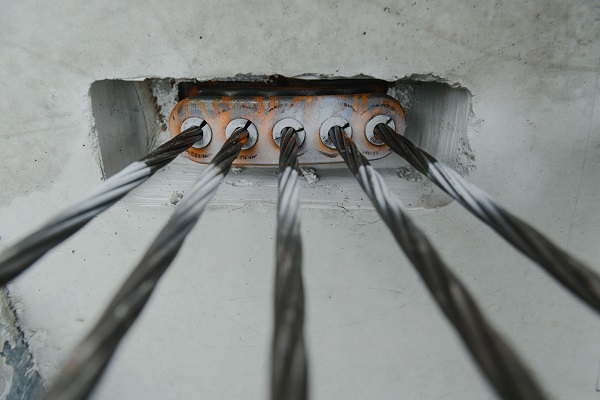Post-tensioning scheme launched to boost construction sector

CARES has engaged with construction industry stakeholders to develop new standards for post-tensioning, a method for reinforcing concrete with high-strength steel strands or bars.
In consulting with the industry for the new standard, CARES spoke with structural engineers, major contractors, clients and the Post-Tensioning Institute of Australia (PTIA) and the Australasian Certification Authority for Reinforcing and Structural Steels (ACRS) among others.
Post-tensioning is widely used in commercial buildings, infrastructure and residential apartments, lending to greater design flexibility and construction speed while also reducing the amount of concrete or other materials needed in the process.
The new standards, which are specifically designed to provide greater assurance in construction supply chains nationwide, are backed by an independent certification scheme – providing complete transparency and clarity for manufacturers and contractors.
This new product certification scheme includes both safety-critical installations as well as products entering the supply chain covered by ACRS certification.
On top of enhancing industry experience, the scheme will complement existing activities by state and territory governments to enhance quality control in built structures.
PTIA chief executive James Woods and CARES chief executive Lee Brankley says the announcement was expected to lead to ongoing improvements in the consistency of construction nationwide, following two years of detailed discussions between the organisations.
“Our overriding goal has been to secure continuing improvements in product standards, materials specification, design and onsite installation,” James explains.
“We are delighted to have been involved with CARES on this, and I am confident our members and the wider industry will seize the opportunity to tap into the vast experience and knowledge that CARES is bringing to Australia.
“The scheme will bring much-needed certification and independent regulation to the industry and is a workable solution at a time of increased scrutiny on building quality.”
Lee adds that working with the PTIA was a natural evolution of longstanding collaborative relationships, and reflected CARES’ commitment to effective multi-stakeholder engagement with clients, consultants and contractors: “We are confident this scheme will work well for the good of the industry. Thanks to CARES’ long track record it is already a proven success in the UK, and as well as Australia is also now being adopted in several other countries.
“We expect colleagues will quickly see improvements in quality through transparency in supply, installation and performance, and much greater clarity around the provenance of critical materials sourced for Australia’s built environment.”
The new scheme covers contractors installing post-tensioning systems, producers of prestressing anchors and prebagged grout, plus firms that carry out remedial grouting of post-tensioned tendons.
